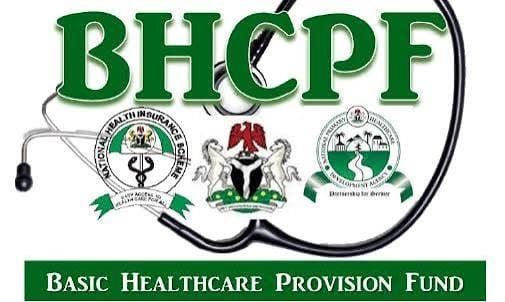
ABUJA, Nigeria – Hypertension. Diabetes. Depression. Burnout. These are not just statistics in Nigeria—they are daily realities for millions. Yet behind these rising health crises lies an overlooked culprit: poor sleep.
This report, written by Chukwu Obinna, reveals how inconsistent sleep patterns are silently fuelling Nigeria’s health emergency. Drawing on medical evidence, personal stories, and expert analysis, it makes one thing clear: rest is medicine, and Nigeria cannot afford to keep ignoring it.
The Wake-Up Call
September 2025, marked globally as Self-Improvement Month, arrives with a stark reminder. Nigerians are sleeping less, and the consequences are devastating.
From chaotic commutes to 12-hour workdays, late-night study sessions, and cultural perceptions that equate rest with laziness, millions are trapped in irregular sleep cycles.
“Sleep is not a luxury; it is the foundation of health,” says Dr. Solomon Eze, a physician and public health advocate. “A consistent sleep schedule helps regulate the body’s internal clock, preventing illness and improving resilience.”
The Science of Sleep Loss
International studies are sounding the alarm:
The American Academy of Sleep Medicine (AASM) warns irregular schedules impair memory, decision-making, and workplace performance.
The National Institutes of Health (NIH) links disrupted circadian rhythms to poor metabolism, obesity, and anxiety.
Harvard Medical School research shows inconsistent sleep increases risks of depression, impaired learning, and weakened immunity.
In Nigeria, where stress is chronic and infrastructure weak, the risks multiply as young professionals, students, and shift workers often sacrifice rest in pursuit of productivity, unaware of the toll on body and mind.
Nigeria’s Sleep Crisis in Numbers
The statistics reveal a silent epidemic:
Sleep deprivation is emerging as a silent public health crisis in Nigeria, with studies showing alarming consequences. A 2019 Journal of Public Health in Africa report revealed that 60% of Nigerians suffer from poor sleep quality, often due to irregular schedules.
According to the National Institutes of Health (NIH), sleep deprivation raises the risk of anxiety and depression by 30%, while inconsistent sleep patterns worsen these conditions. The World Health Organisation (WHO) recommends seven to nine hours of nightly rest, yet fewer than 20% of Nigerians consistently meet this benchmark, a 2020 Sleep Medicine Reviews study found.
The health toll is even more severe when linked to chronic illnesses. Research by the American Academy of Sleep Medicine (AASM) in 2021 showed that irregular sleep schedules increase the risk of hypertension and diabetes by 15–20% two conditions already prevalent across Nigeria.
Despite these dangers, the Nigerian Medical Association reports that the country has fewer than 100 certified sleep specialists for over 200 million people. “These numbers reflect real suffering,” says Dr. Eze. “The tragedy is that a consistent sleep schedule is one of the cheapest, most effective solutions available.”
Sleepless Stories: The Human Cost
Behind the numbers are deeply personal battles:
Chinelo Okeke, a 29-year-old banker in Abuja, spent years on just four hours of sleep. “I thought I was being productive. Instead, I developed hypertension. My doctor made me adopt a 10pm–6am routine. Now my blood pressure is stable—I feel alive again.”
Tunde Adekunle, 21, a University of Lagos student, nearly failed out of school. “I had no fixed bedtime—2am one night, 4am the next. I was exhausted, failing exams, and anxious. Switching to 11pm–7am sleep saved my academics and my sanity.”
Their stories echo a national truth: sleep is not weakness—it is survival.
Why Nigerians Can’t Sleep
If sleep is free, why are Nigerians still sleep-deprived?
Work demands: Many juggles multiple jobs, night shifts, or unpredictable hours.
Urban stress: Traffic jams force commuters to sacrifice rest.
Power outages: Blackouts disrupt bedtime routines.
Cultural beliefs: Rest is often mocked as laziness, especially among youth.
“Our society glorifies overwork,” says Dr. Eze. “Until we shift that mindset, many will remain trapped in unhealthy patterns.”
Lessons from Around the World
Other countries offer roadmaps:
Japan, once plagued by “karoshi” (death from overwork), introduced corporate sleep reforms.
Finland integrates sleep awareness into school health education.
The Netherlands runs national campaigns on sleep hygiene.
The results are measurable:
AASM studies show regular sleep schedules improve cognitive performance by 25%.
A 2021 Sleep Health study found consistent sleep reduced cardiovascular risks by 15%.
For Nigeria, adopting similar reforms could significantly cut the burden of lifestyle diseases.
Why Reform Cannot Wait
Nigeria’s health system is already strained by depression, hypertension, and diabetes. Without reform, the sleep crisis will deepen the burden.
The 2023 Mental Health Act was a landmark but failed to address sleep explicitly. Experts argue this omission is dangerous.
“Sleep is a cornerstone of public health,” says Dr. Eze. “If we continue to ignore it, we will keep losing the fight against preventable illness.”
A National Sleep Strategy: The Way Forward
Health experts are calling for the adoption of a national sleep health strategy to address Nigeria’s rising sleep crisis.
The proposed framework includes dedicating at least 5% of the national health budget to mental health and sleep programmes, expanding medical training to produce sleep specialists, and integrating sleep education into community health initiatives.
They also recommend launching nationwide awareness campaigns on sleep hygiene, emphasizing consistent sleep schedules.
Workplace reforms and accessible support systems are central to the proposal, with experts urging employers to adopt flexible schedules and provide rest breaks. They further advise the creation of sleep hotlines, mobile apps, and community health centres to offer support for sleep disorders.
“Every sleepless night is a missed opportunity for better health,” cautioned Dr. Eze, stressing the urgent need for government-backed policies to protect Nigerians from the long-term risks of chronic sleep deprivation.
The Cost of Doing Nothing
The risks of inaction are clear:
Rising chronic illness: Hypertension, diabetes, and depression will worsen.
Falling productivity: Exhaustion will sap workplace and academic output.
Economic burden: Treating preventable illnesses will strain health budgets.
Human suffering: Millions will remain trapped in cycles of fatigue, stress, and illness.
A Wake-Up Call for Nigeria
As Self-Improvement Month reminds the world to invest in health, Nigeria faces a choice: keep glorifying sleeplessness or embrace rest as a national health priority.
Dr. Eze puts it bluntly: “Sleep is not a luxury—it is survival. Poor sleep is driving Nigeria’s health emergency, but consistent sleep could be our cheapest and most powerful medicine.”
The choice is simple. Nigeria must decide to stay awake and sick, or rest and heal.







